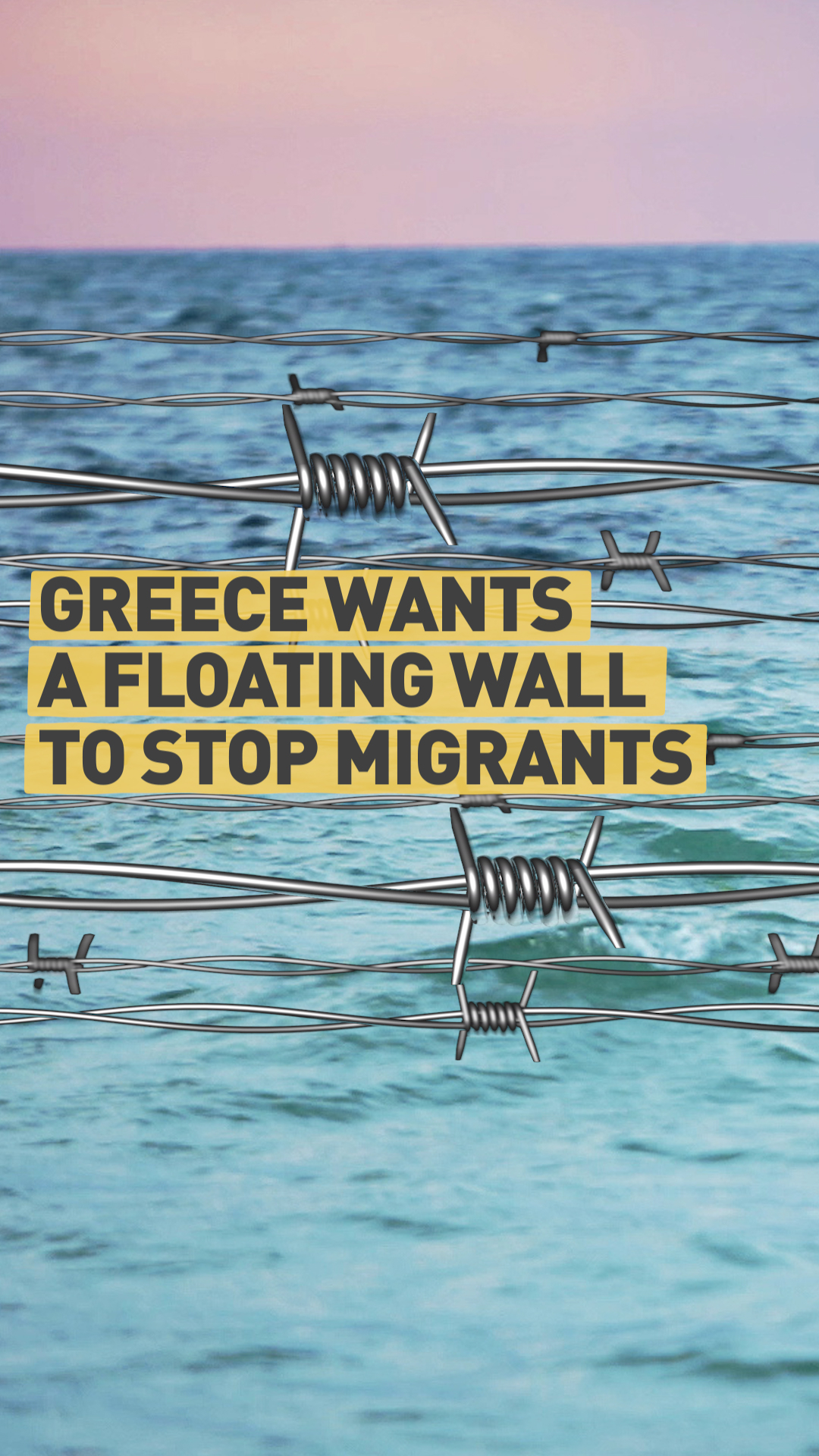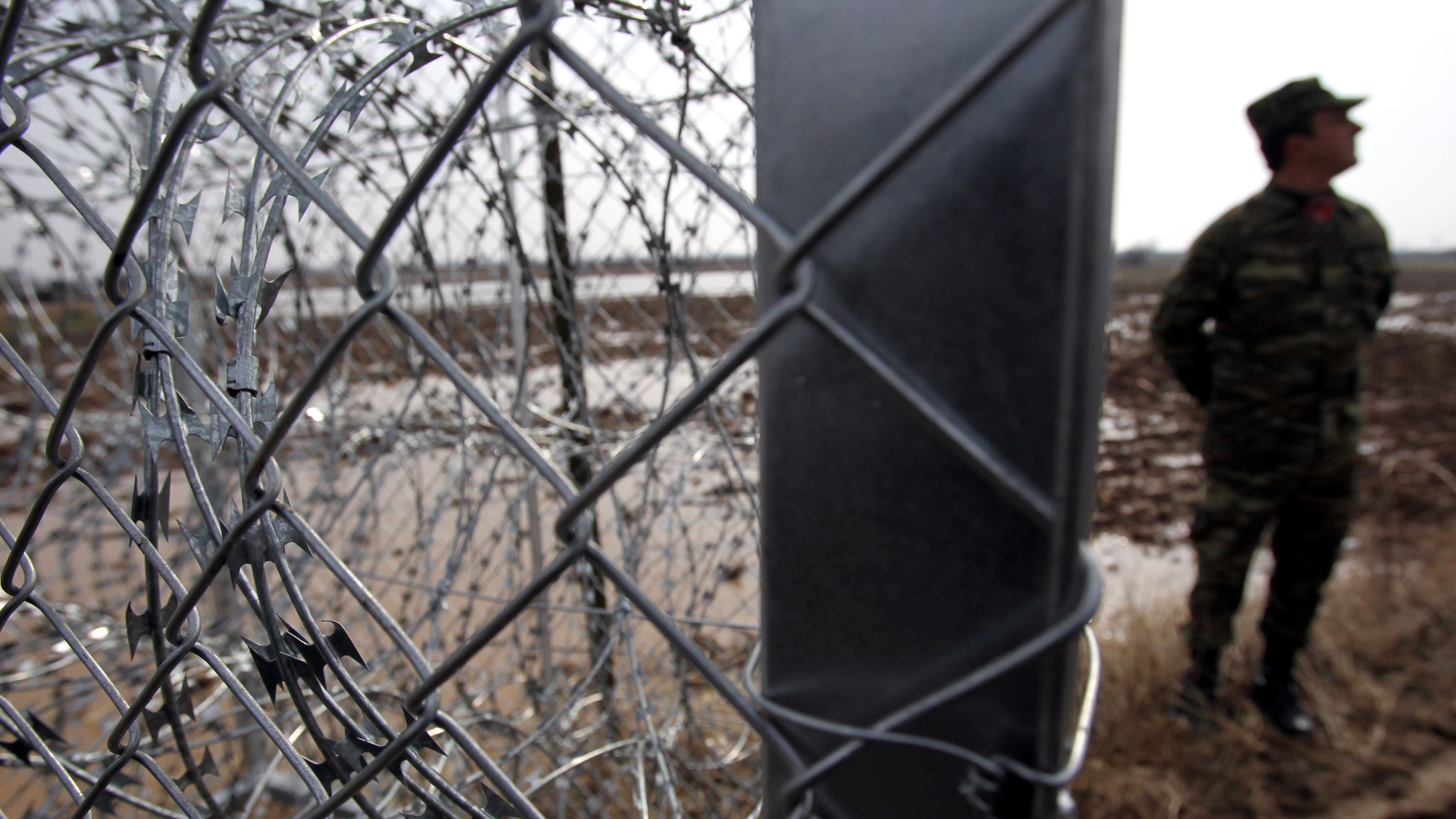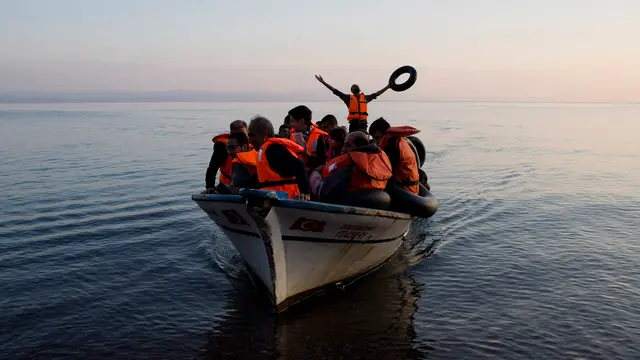01:04

Greece wants to install a barrier off the coast of Lesbos in the Aegean Sea to stop migrants and refugees arriving on its shores through Turkey, according to government officials.
The proposed 1.1-meter-tall, 2.7-kilometers-long net-like barrier will rise 50 centimeters above sea level and feature flashing lights on top of it for visibility at night.
In a document, Greece's defense ministry invited private contractors to bid on supplying the fence within three months. The ministry said the plan would cost 500,000 euros ($550,000), including at least four years of maintenance costs.
Greece's defense minister, Nikos Panagiotopoulos, told the country's Skai Radio: "The invitation for floating barriers is [a move] in the right direction. We will see ... what its effect as a deterrent will be in practice."
Panagiotopoulos claimed Greece had tried and tested the effectiveness of borders in keeping migrants out, with the cement and barbed-wire fence it erected in 2012 in Evros, along its northern land border with Turkey.

Part of a 12-kilometer border fence along the Greek-Turkish border (Credit: Nikolas Giakoumidis/AP)
Human rights group Amnesty International has raised concerns about the proposed floating barrier, saying it will put more lives at risk as it may hinder rescue efforts providing life-saving help to refugees and migrants attempting the dangerous sea crossing to Lesbos.
The group said the proposal "marks an alarming escalation in the Greek government's ongoing efforts to make it as difficult as possible for asylum-seekers and refugees to arrive on its shores." It warned that it will also "lead to more danger for those desperately seeking safety."
Greece has been seen as a gateway to Europe for refugees and migrants fleeing through Turkey in recent years, since the start of the European refugee crisis in 2015. Many are fleeing war and persecution. The United Nations (UN) says the majority of arrivals are from Afghanistan and Syria.
A large number of those arriving have been refugees from Syria, fleeing the war that was born out of civilian uprisings in 2011. Years of relentless fighting left 6.6 million Syrians displaced internally and 5.6 million around the world, according to the UN High Commissioner for Refugees (UNHCR).

Thousands of refugees and migrants have died attempting the perilous journey across the Mediterranean Sea to Europe. (Credit: Santi Palacios/AP)
Under a 2016 migration agreement between the European Union and Turkey, the Turkish government was promised up to 6 billion euros to help stop the mass movement of migrants to Europe.
However, Greece received almost 60,000 sea arrivals last year, almost doubling the total number in 2018. Between January and October, the International Organization for Migration (IOM) recorded 66 deaths on the Eastern Mediterranean route.
So far this year, the number of arrivals by sea to Greece already stands at almost 2,800. The island of Lesbos has had the highest number of arrivals.
Aid groups have said the surge in the number of barriers put up around Europe have not deterred refugees and migrants from making the perilous journeys across the Mediterranean Sea to the EU.
 简体中文
简体中文

